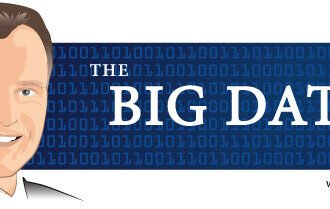I’m not alone in feeling that the breathless excitement about “Big Data” is a bit much — just ask Stephen Few (Big Data, Big Deal). The skepticism isn’t directed at the vast possibilities inherent in broader use of data; we’re more concerned that “Big” isn’t the full answer. In fact, focusing on “Big” distracts from other fundamental barriers — particularly the very human skills required for thoughtful analysis and effective communication of insights.
I’m not alone in feeling that the breathless excitement about “Big Data” is a bit much — just ask Stephen Few (Big Data, Big Deal). The skepticism isn’t directed at the vast possibilities inherent in broader use of data; we’re more concerned that “Big” isn’t the full answer. In fact, focusing on “Big” distracts from other fundamental barriers — particularly the very human skills required for thoughtful analysis and effective communication of insights.
These missing links are illustrated beautifully in an article by Felix Salmon, a blogging editor for Reuters, about the election — When Quants Tell Stories:
“If you think that the value of Nate Silver is in the model, you’re missing the most important part: there are lots of people with models, and most of those models are pretty similar to each other. The thing which sets Silver apart from the rest is that he can write: he can take a model and turn it into a narrative, walking his readers through to his conclusions.”
“At heart, the campaign was marrying quantitative skills with storytelling, to unbeatable effect. Which stories should the campaign tell, to any given group of people? How should it tell those stories? And who should it get to deliver those stories?”
“The thing that Silver and the Obama campaign have in common, then, is that they used their databases to tell stories. Or, more to the point, their databases and models were used so that Americans could tell stories to each other.”
All the work of collecting, combining, and modeling data is wasted if not enough attention is paid to how the data is shared. The data needs to be transformed into bite-sized (pre-chewed, even) stories that can easily stick in the brains of your audience. And as evidenced by the Obama campaign, there are often many different stories based on the context of each audience member. Years ago, we dubbed this The Last Mile of Business Intelligence. Despite new data trends, technologies, and buzz words, some fundamentals never change.






-330x220.jpg)
